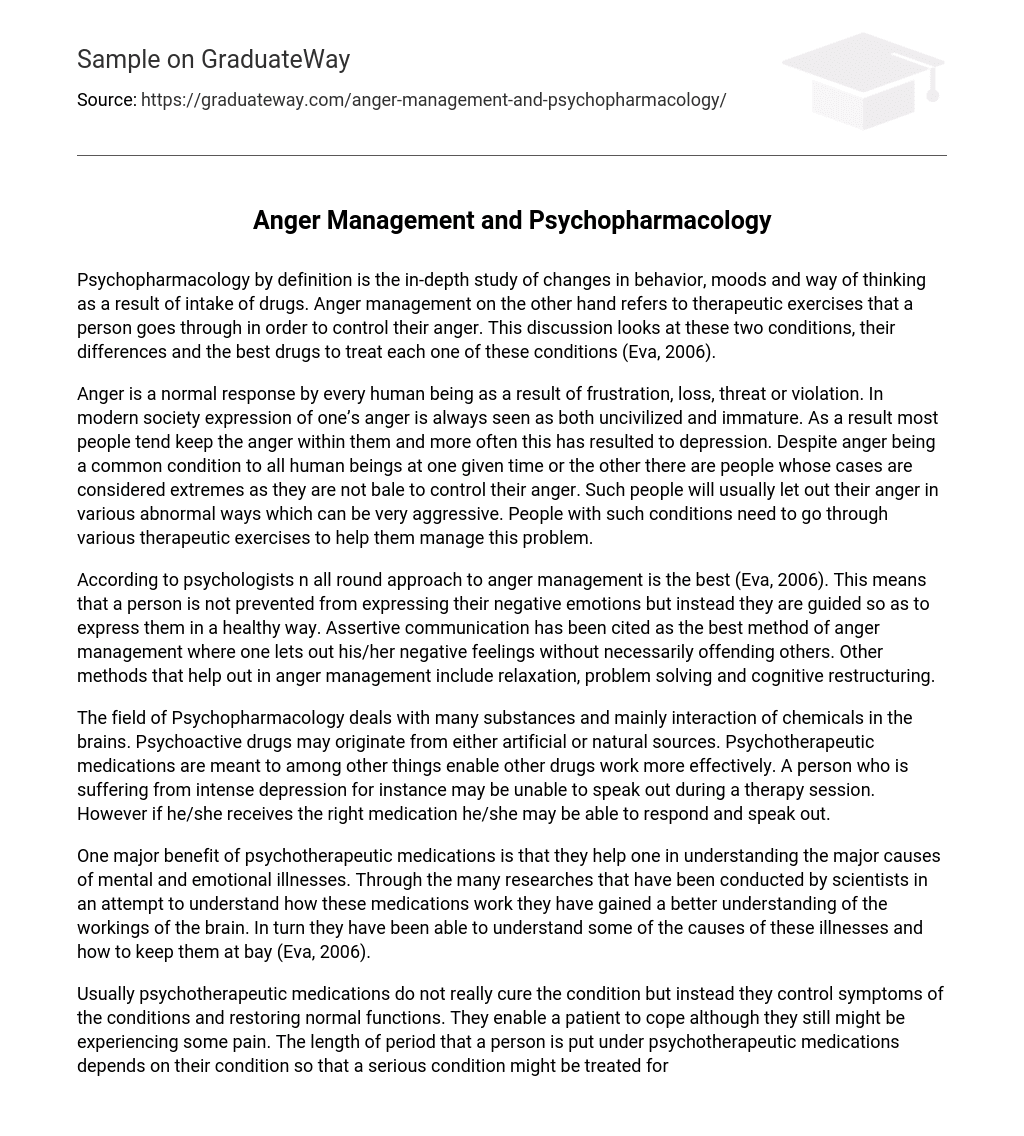Psychopharmacology by definition is the in-depth study of changes in behavior, moods and way of thinking as a result of intake of drugs. Anger management on the other hand refers to therapeutic exercises that a person goes through in order to control their anger. This discussion looks at these two conditions, their differences and the best drugs to treat each one of these conditions (Eva, 2006).
Anger is a normal response by every human being as a result of frustration, loss, threat or violation. In modern society expression of one’s anger is always seen as both uncivilized and immature. As a result most people tend keep the anger within them and more often this has resulted to depression. Despite anger being a common condition to all human beings at one given time or the other there are people whose cases are considered extremes as they are not bale to control their anger. Such people will usually let out their anger in various abnormal ways which can be very aggressive. People with such conditions need to go through various therapeutic exercises to help them manage this problem.
According to psychologists n all round approach to anger management is the best (Eva, 2006). This means that a person is not prevented from expressing their negative emotions but instead they are guided so as to express them in a healthy way. Assertive communication has been cited as the best method of anger management where one lets out his/her negative feelings without necessarily offending others. Other methods that help out in anger management include relaxation, problem solving and cognitive restructuring.
The field of Psychopharmacology deals with many substances and mainly interaction of chemicals in the brains. Psychoactive drugs may originate from either artificial or natural sources. Psychotherapeutic medications are meant to among other things enable other drugs work more effectively. A person who is suffering from intense depression for instance may be unable to speak out during a therapy session. However if he/she receives the right medication he/she may be able to respond and speak out.
One major benefit of psychotherapeutic medications is that they help one in understanding the major causes of mental and emotional illnesses. Through the many researches that have been conducted by scientists in an attempt to understand how these medications work they have gained a better understanding of the workings of the brain. In turn they have been able to understand some of the causes of these illnesses and how to keep them at bay (Eva, 2006).
Usually psychotherapeutic medications do not really cure the condition but instead they control symptoms of the conditions and restoring normal functions. They enable a patient to cope although they still might be experiencing some pain. The length of period that a person is put under psychotherapeutic medications depends on their condition so that a serious condition might be treated for a longer period than lighter condition. Just like other drugs the effects of psychotherapeutic medications differ with individuals with some needing a higher dosage to ensure effectiveness. Likewise some of these medications have side effects while others do not.
In conclusion anger management is a mental condition which can be out under control and one of the methods would be by using psychotherapeutic medications.
Reference:
Eva, L. Feindler. (2006). Anger Related Disorders, New York: Springer Publishing
Company.





